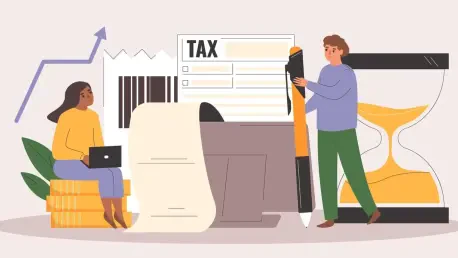In a recent briefing, Vermont Governor Phil Scott outlined several initiatives aimed at supporting economic growth through tax relief and electric vehicle (EV) incentives. These measures are crucial as Vermont seeks to address affordability concerns and enhance its position in sustainable transportation. The tax relief package proposed by Scott’s administration includes key measures such as increasing exemptions on Social Security, eliminating taxes on military pensions, and extending the child tax credit. The Governor emphasized that these initiatives are designed to retain more money in the pockets of Vermonters, thereby boosting financial stability among residents. This package also garnered bipartisan support, which is seen as a vital factor for advancing through the legislative process effectively. Additionally, Vermont Tax Commissioner Bill Shouldice pointed out how these tax breaks could encourage individuals to stay within the state, underscoring the broader impact on economic retention.
Tax relief, often a controversial topic, has gained traction due to its potential to alleviate economic pressures on residents. With exemption policies on Social Security, Governor Scott aims to ease burdens particularly on retirees, who are increasingly facing affordability challenges in the state. By eliminating taxes on military pensions, the plan seeks to honor veterans’ contributions and bring about financial respite to retired service members. Expanding the child tax credit further demonstrates a commitment to supporting families, offering additional resources for those with dependents. Governor Scott’s optimism for bipartisan backing underlines the collaborative spirit necessary for implementing such impactful measures. Well-received by both major parties, this initiative suggests a unified approach to fostering economic growth and addressing the increasing costs of living.
Electric Vehicle Infrastructure Challenges
While tax relief initiatives set an optimistic tone, Vermont faces significant challenges in the realm of electric vehicle infrastructure. A multi-state initiative targeting EV sales has hit a stumbling block due to lacking federal incentives and technological hurdles. Governor Scott issued an executive order to pause state enforcement of this initiative to address these issues effectively. Transport Secretary Joe Flynn highlighted Vermont’s impressive number of EV charging stations per capita but acknowledged constraints stemming from existing Buy America component requirements. These stipulations complicate the deployment of new infrastructure projects, crucial for progressing Vermont’s ambitious sustainability goals. With technological advancements continuously evolving, Vermont must adapt its approach to keep pace with changes and promote widespread EV adoption.
The growing emphasis on sustainable transportation necessitates more robust support for electric vehicle deployment across Vermont. Although the state boasts an impressive number of charging stations, gaps still exist in infrastructure development due to stringent component requirements. These limitations inhibit the seamless integration of new technologies essential for boosting EV sales in alignment with regional goals. Governor Scott’s executive order halts enforcement to reassess strategies and solutions. By addressing technological hurdles through legislative and administrative efforts, Vermont can better position itself within the evolving landscape of sustainable transportation. Continued dialogue around incentives, infrastructure development, and technological adaptation will be crucial in maintaining momentum toward achieving targeted EV sales and environmental objectives.
Local Governance and Broader Responsibilities
In a recent briefing, Vermont Governor Phil Scott introduced several initiatives aimed at stimulating economic growth through tax relief and promoting the use of electric vehicles (EVs). These measures are essential as Vermont seeks to tackle affordability issues while enhancing its role in sustainable transportation. Scott’s administration proposes a tax relief package featuring increased exemptions on Social Security, the elimination of taxes on military pensions, and an extension of the child tax credit. The Governor highlighted that these initiatives are intended to keep more money in Vermonters’ pockets, thus improving residents’ financial stability. This package has received bipartisan support, a crucial factor for its smooth passage through the legislative process. Additionally, Vermont Tax Commissioner Bill Shouldice emphasized that these tax reductions could encourage people to remain in the state, highlighting their broader impact on economic retention. By alleviating economic pressures, Governor Scott’s plan aims to ease burdens, particularly for retirees, veterans, and families.









